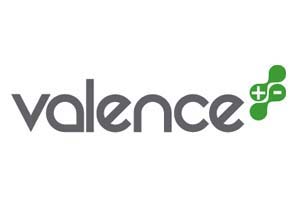
X10 is a protocol for communication among electronic devices used for home automation (domotics). It primarily uses power line wiring for signaling and control, where the signals involve brief radio frequency bursts representing digital information. A wireless radio-based protocol transport is also defined.

In electronics, a remote control is an electronic device used to operate another device from a distance, usually wirelessly. In consumer electronics, a remote control can be used to operate devices such as a television set, DVD player or other digital home media appliance. A remote control can allow operation of devices that are out of convenient reach for direct operation of controls. They function best when used from a short distance. This is primarily a convenience feature for the user. In some cases, remote controls allow a person to operate a device that they otherwise would not be able to reach, as when a garage door opener is triggered from outside.
Aiwa is a Japanese consumer electronics brand of Aiwa Co. Ltd., a subsidiary of Towada Audio holdings. The current company was established in 2017 and creates mainly audio products; the brand is also licensed to or owned by other companies in different regions of the world, producing various electronics.

RadioShack is an American electronics retailer which was established in 1921 as an amateur radio mail-order business. Its parent company, Radio Shack Corporation, was purchased by Tandy Corporation in 1962, shifting its focus from radio equipment to hobbyist electronic components. At its peak in 1999, Tandy operated over 8,000 RadioShack stores in the United States, Mexico, and under the Tandy name in The Netherlands, Belgium, Germany, France, the United Kingdom, Australia, and Canada.

Kyocera Corporation is a Japanese multinational ceramics and electronics manufacturer headquartered in Kyoto, Japan. It was founded as Kyoto Ceramic Company, Limited in 1959 by Kazuo Inamori and renamed in 1982. It manufactures industrial ceramics, solar power generating systems, telecommunications equipment, office document imaging equipment, electronic components, semiconductor packages, cutting tools, and components for medical and dental implant systems.

The Micro-Professor MPF-I is a microcomputer released by Multitech in 1981. The company's first branded product, it was marketed as a training system to learn machine code and assembly language for the Zilog Z80 microprocessor. After releasing several iterations of the product, Acer sold the product line to Flite Electronics in 1993.
Zenith Electronics, LLC, is an American research and development company that develops ATSC and digital rights management technologies. It is owned by the South Korean company LG Electronics. Zenith was previously an American brand of consumer electronics, a manufacturer of radio and television receivers and other consumer electronics, and was headquartered in Glenview, Illinois. After a series of layoffs, the consolidated headquarters moved to Lincolnshire, Illinois. For many years, their famous slogan was "The quality goes in before the name goes on". LG Electronics acquired a controlling share of Zenith in 1995; Zenith became a wholly owned subsidiary in 1999. Zenith was the inventor of subscription television and the modern remote control, and was the first to develop high-definition television (HDTV) in North America.
Mitsumi Electric Co., Ltd. is a Japanese manufacturer of consumer electronic components, founded in 1954. Mitsumi has been a subsidiary of MinebeaMitsumi since 27 January 2017, when it merged with Minebea to form the parent company.
Netgear, Inc., is an American computer networking company based in San Jose, California, with offices in about 22 other countries. It produces networking hardware for consumers, businesses, and service providers. The company operates in three business segments: retail, commercial, and as a service provider.
Apex Digital, Inc. is an American electronics manufacturer based in Walnut, California founded in 1997. It manufactures and distributes high definition and LCD panel televisions, DVD recorders and players, and other digital items including photo frames and bookshelf audio systems. It also has an office in Ontario, California.
Digi International, Inc. is an American Industrial Internet of Things (IIoT) technology company based in Hopkins, Minnesota.

Eizo Corporation is a Japanese visual technology company, founded in March 1968, which manufactures display products and other solutions for markets such as business, healthcare, graphics, air traffic control, and maritime. The company is headquartered in Hakusan, Ishikawa Prefecture.
Hisense Group is a Chinese multinational major appliance and electronics manufacturer headquartered in Qingdao, Shandong Province, China. Televisions are the main products of Hisense, and it is the largest TV manufacturer in China by market share since 2004. Hisense is also an OEM, so some of its products are sold to other companies and carry brand names not related to Hisense.
Tadiran refers to a former Israeli conglomerate, which was founded in 1962 by the merger of two companies, Tadir and Ran. The name of the company is a joining of both companies’ names.
SABA is a German electronics company founded in 1923 at Triberg im Schwarzwald, present-day Baden-Württemberg. SABA started as a clock-making company, then became a radio manufacturer, and a few years later a record label. In 1968, SABA sold the majority of the company to GTE, an American telephone company. In 1980, the company was purchased by Thomson SA and integrated as a separate business unit.

Valence Technology, Inc. was a company that developed and manufactured lithium iron phosphate cathode material as well as lithium ion battery modules and packs. The modules come in 12 V, 18 V, 24 V, and 36 V configurations. Valence's products are used in electric vehicle and plug-in hybrid electric vehicles (PHEVs) such as cars, scooters, motorbikes, and commercial vehicles such as buses, delivery vans and trucks. Valence batteries are also used in wheelchairs, medical carts, robotics, marine, rail, as well as stationary applications such as remote power, uninterruptible power supply (UPS), energy storage systems, frequency regulation and switching gear.
Cryptek is a company that develops and sells information security products and services to governments and corporations. Cryptek is headquartered in Dulles, Virginia, United States.

Birmingham Sound Reproducers (BSR) was a 20th-century British manufacturer of record player turntables, reel-to-reel tape recorder mechanisms and, for a time, housewares.

RCA is an American multinational trademark brand owned by Talisman Brands, Inc. which is used on products made by that company as well as Sony Music Entertainment, Voxx International and ON Corporation. RCA is an abbreviation for the Radio Corporation of America, founded in 1919. The company became known as the RCA Corporation in 1969. In late 1986, RCA was purchased by General Electric and over the next few years, GE sold or liquidated most of the corporation's various divisions and assets.
Universal Electronics Inc. (UEI) is an American smart home technology provider and manufacturer of universal remote controls, IoT devices such as voice-enabled smart home hubs, smart thermostats, home sensors; as well as a white label digital assistant platform optimized for smart home applications, and other software and cloud services for device discovery, fingerprinting and interoperability. The company designs, develops, manufactures and ships products both under the "One For All" brand and as an OEM for other companies in the audio video, subscription broadcasting, connected home, tablet and smart phone markets. In 2015, it expanded its product and technology platform to include home automation, intelligent sensing and security.








